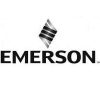The Situation
Darius sells precious gems to jewelry stores. One of his prospects, Jane, is a buyer for a small chain of mall stores. Jane was scheduled to attend a gems and jewelry trade show, but Darius could not attend. Fortunately (or so he thought), one of his good customers would be at the show.
Darius asked Jane to meet up with this customer and chat about Darius’ company. Darius was sure the customer would give a glowing recommendation.
The Best Laid Plans
When Darius saw Jane after her return, she reported that the customer said he really liked Darius’ merchandise and service. However, the customer said that as a supplier, Darius’s firm doesn’t come cheap. He added that Darius’ company had two price increases within a year.
How to Handle the Complaint
Uh-oh. Darius is embarrassed by this “testimonial.” He realizes he will have to do damage control. In terms of a Q4 selling strategy, which course of action is his best move?
- Darius should contact this customer and point out that his facts are incorrect. He can ask the customer to talk to Jane, repairing the damage caused by his negative (and incorrect) remark.
- Quickly explaining to Jane that the customer had his facts wrong and that his complaints were unfounded, it’s important that Darius correct any bad impression.
- When Jane mentions the pricing remark, Darius should respond the same way he would manage any objection in a sales call. He should be relaxed, but ask Jane about possible price concerns in light of what she heard.
- Darius should arrange for Jane to talk to three other customers who have no negative attitudes about pricing, to prove it’s not a problem.











